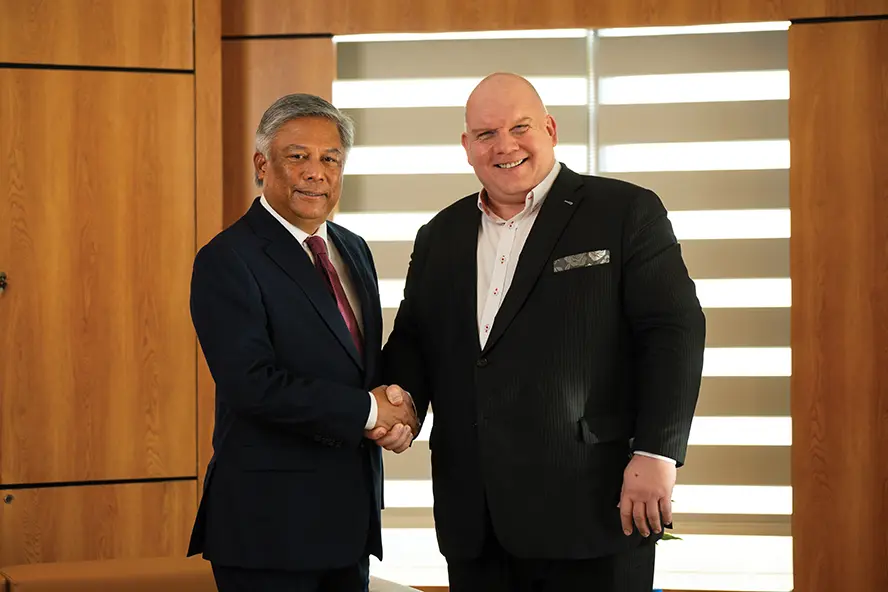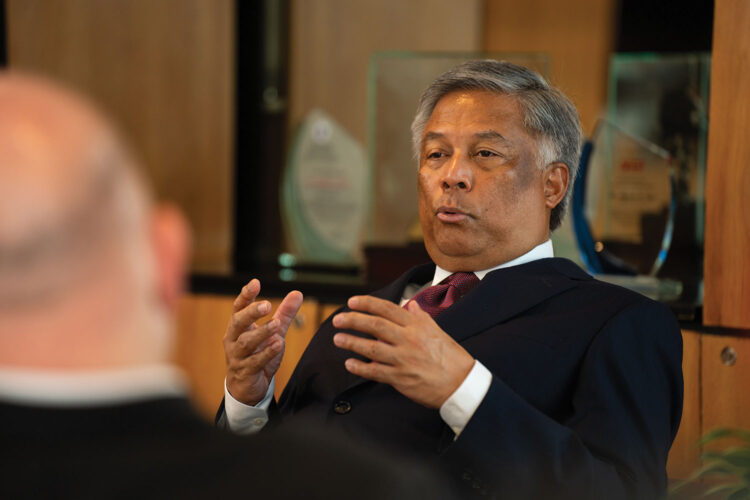IAG sits down with PAGCOR Chairman and CEO Alejandro Tengco to discuss his 12 months in the job and ambitions for the duration of his tenure overseeing the Philippines gaming regulator.
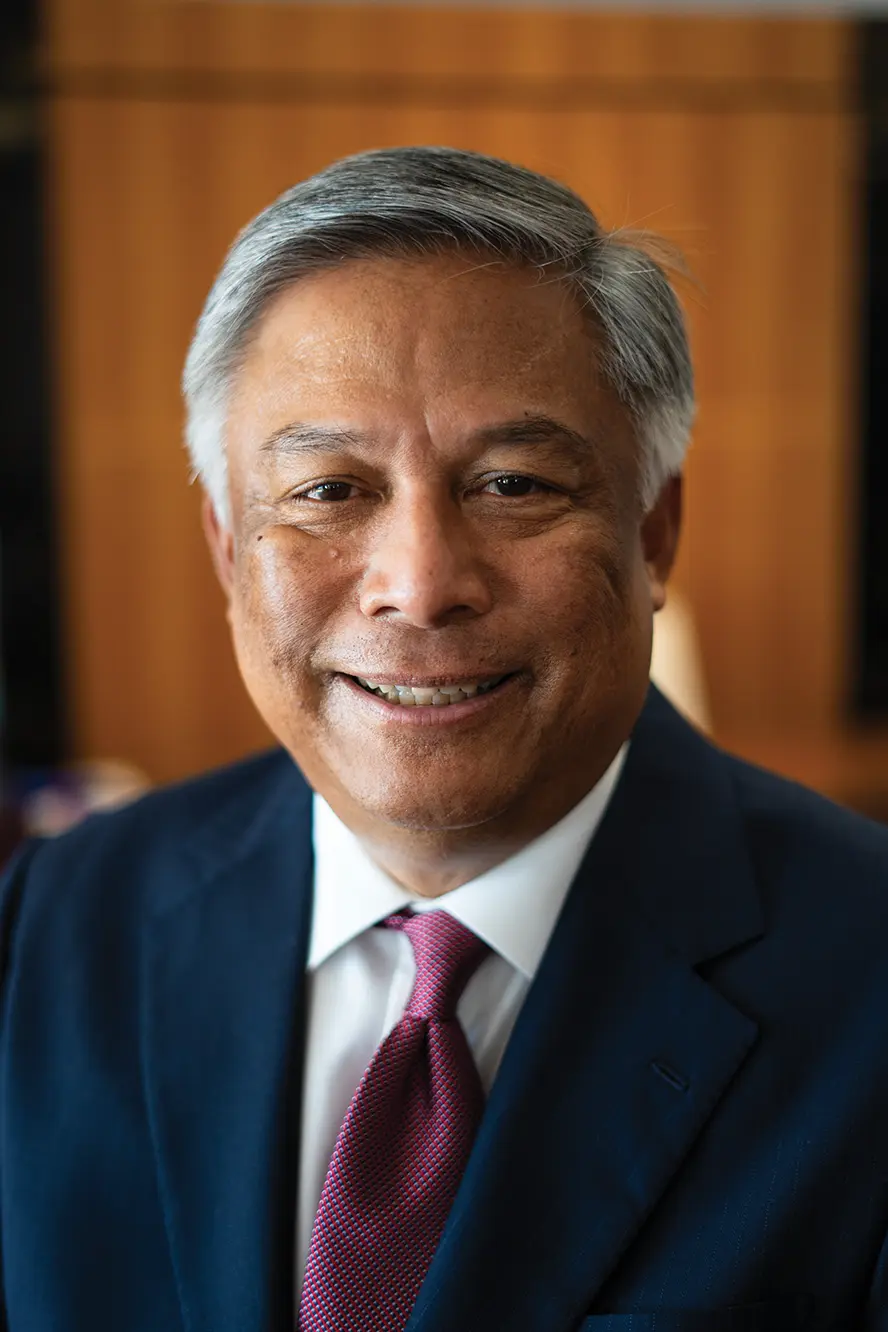 Andrew W Scott: Chairman Tengco, thank you so much for agreeing to speak with the readers of IAG.
Andrew W Scott: Chairman Tengco, thank you so much for agreeing to speak with the readers of IAG.
Alejandro Tengco: It is indeed an honor for me to be invited to a one-on-one interview with you, Andrew.
AWS: You’ve been Chairman and CEO of PAGCOR for almost a year now, and you’ve been busy in that year. What would you describe as your primary achievements so far?
AT: I would say the increase in revenue is the most important thing that has happened to PAGCOR since my assumption into office. We have increased our revenue by close to 48% compared to a year ago. And considering that we are still recovering from the effects of the pandemic, I should say that it’s a very good result, really. It’s one of the major if not the best achievements that I have had in my one year in office.
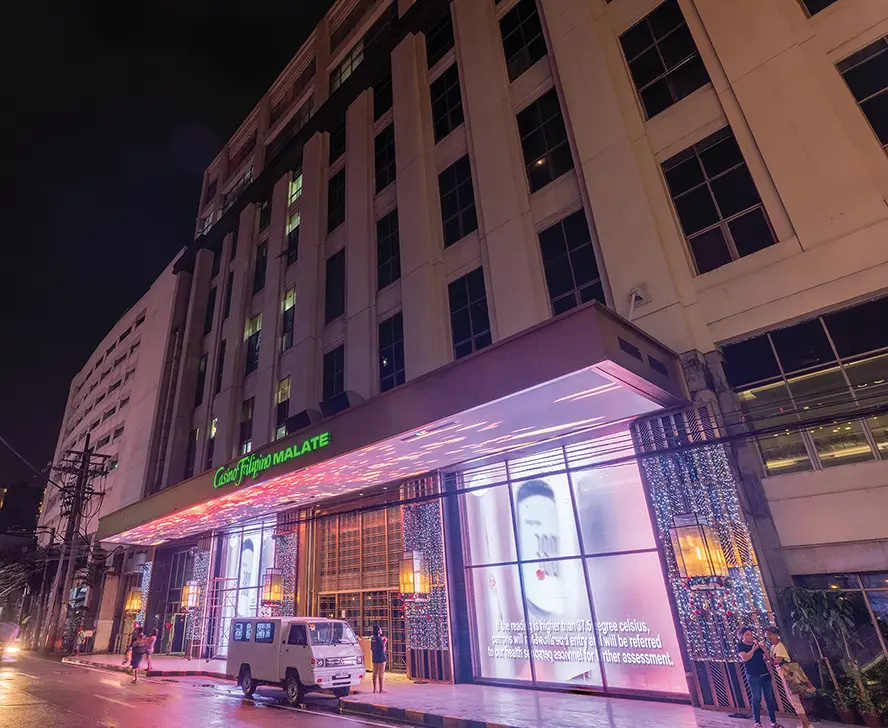 AWS: Let me ask you more generically about PAGCOR. It’s a very large organization with some 10,000 employees.
AWS: Let me ask you more generically about PAGCOR. It’s a very large organization with some 10,000 employees.
AT: Close to 10,000 … 9,901 to be exact.
AWS: What would you describe as the main challenges in running not only an organization of that size, but also an organization that plays a very special role in the Philippines and is seen as really contributing to nation building?
AT: Actually, there are a lot of challenges that I’ve faced and will still face, because of the many things that I will be deciding on and implementing. Some might be controversial, but one thing’s for sure: I, together with the Board, mean well. I came in and I thought there were so many things that we had to restructure in the organization. I came in at a time when the procurement department was under the marketing department, which was unheard of. Both marketing and the procurement departments play a vital role in any organization.
Then you had operations not being given that much attention in the past, causing revenues not to increase dramatically. And I’ll be more specific: our properties, some of them are run down. Our equipment, like slot machines – you would see cracks in the glass, and some would still offer games of the yesteryears, again affecting the number of people who would patronize these places. You would have some contracts that you had to review – some of them for very big amounts and very controversial. So that was another challenge. I mean, how to get out of this contract that was signed and approved by the previous board?
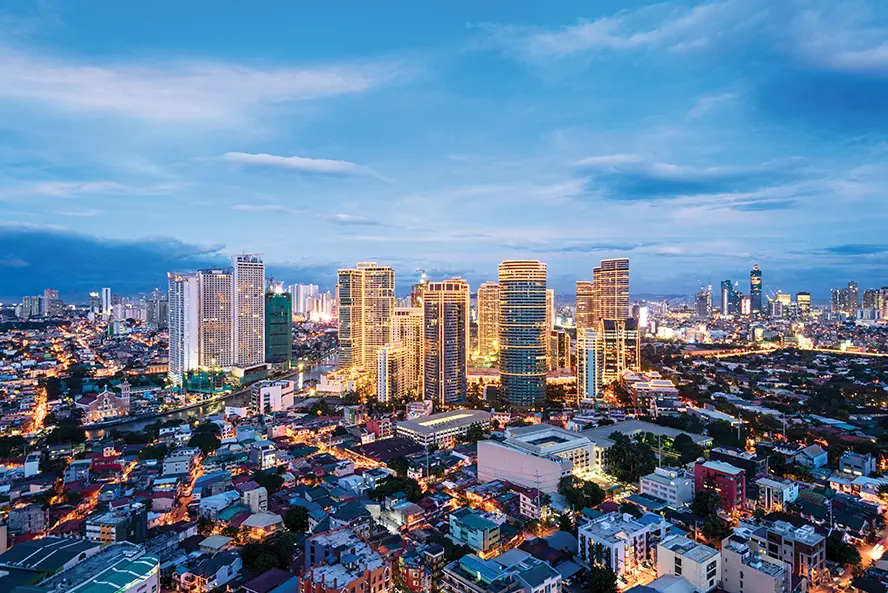 The issue of privatization at this very juncture was already being talked about too, not only outside of PAGCOR but within PAGCOR. And 50% of our employees represent the operations group. I mean, you can just imagine how many would be opposing such a plan at this very moment. But again, it’s another challenge.
The issue of privatization at this very juncture was already being talked about too, not only outside of PAGCOR but within PAGCOR. And 50% of our employees represent the operations group. I mean, you can just imagine how many would be opposing such a plan at this very moment. But again, it’s another challenge.
We’re also coming from a period of recovery from the pandemic. You really have to enhance your property, and you really have to do more marketing efforts because you need to convince not only your previous customers but prospective customers to come and visit your properties. That again is a challenge because you’re competing against the IRs – whose facilities we will not be able to match – with five or six-star rated rooms, specialty restaurants, an area devoted to branded luxury products, and outdoor areas that make you feel like you’re at a resort. Definitely, we will not be able to compete with that, so this is another challenge.
Not a week passes where we do not encounter a new problem, and that’s another challenge.
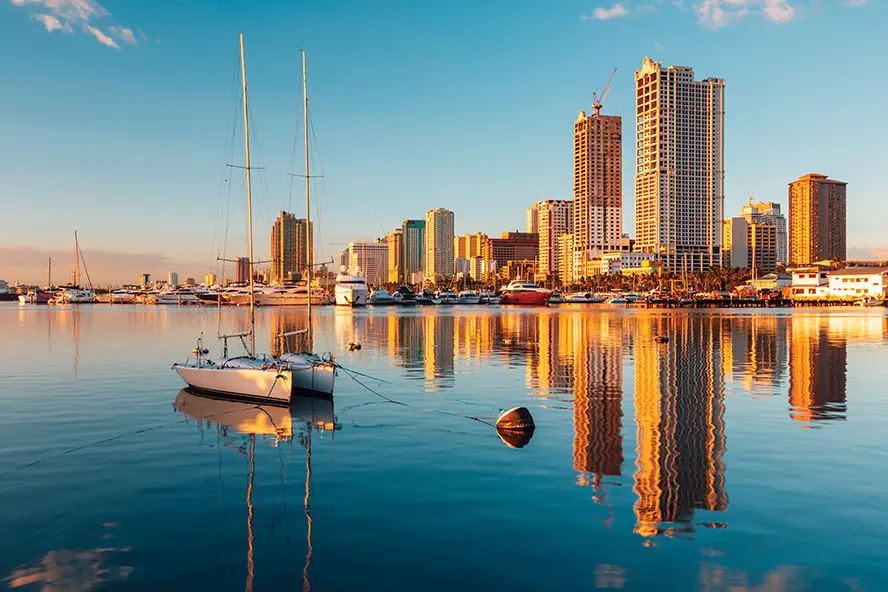 AWS: We’ve been following the Asian gaming industry for 18 years and in that time we’ve seen a number of PAGCOR Chairmen come and go. It is such an important role in the Philippines, very closely tied to the President, and I think the nature of the person at the top of PAGCOR is crucial in developing the corporate culture that flows down through the entire organization. How would you describe your personal leadership style in running PAGCOR?
AWS: We’ve been following the Asian gaming industry for 18 years and in that time we’ve seen a number of PAGCOR Chairmen come and go. It is such an important role in the Philippines, very closely tied to the President, and I think the nature of the person at the top of PAGCOR is crucial in developing the corporate culture that flows down through the entire organization. How would you describe your personal leadership style in running PAGCOR?
AT: I’ll start off by saying that, looking at the current setup, the Chairman of PAGCOR should be firm, exercise political will and at the same time be transparent. You know, it’s not really easy to run a government corporation. If you will not be firm and you will not have the political will to back up the attitude of firmness and toughness, I don’t think in the first place you should even think that you will be successful in being the Chairman and CEO of PAGCOR. Added to that is a need to be transparent to all employees, from the lowest rank to your peers in the executive office.
I was told that I’m one of the most transparent leaders that PAGCOR has ever had, and from what I feel it is truly appreciated by not only the officers but employees down to the lowest level.
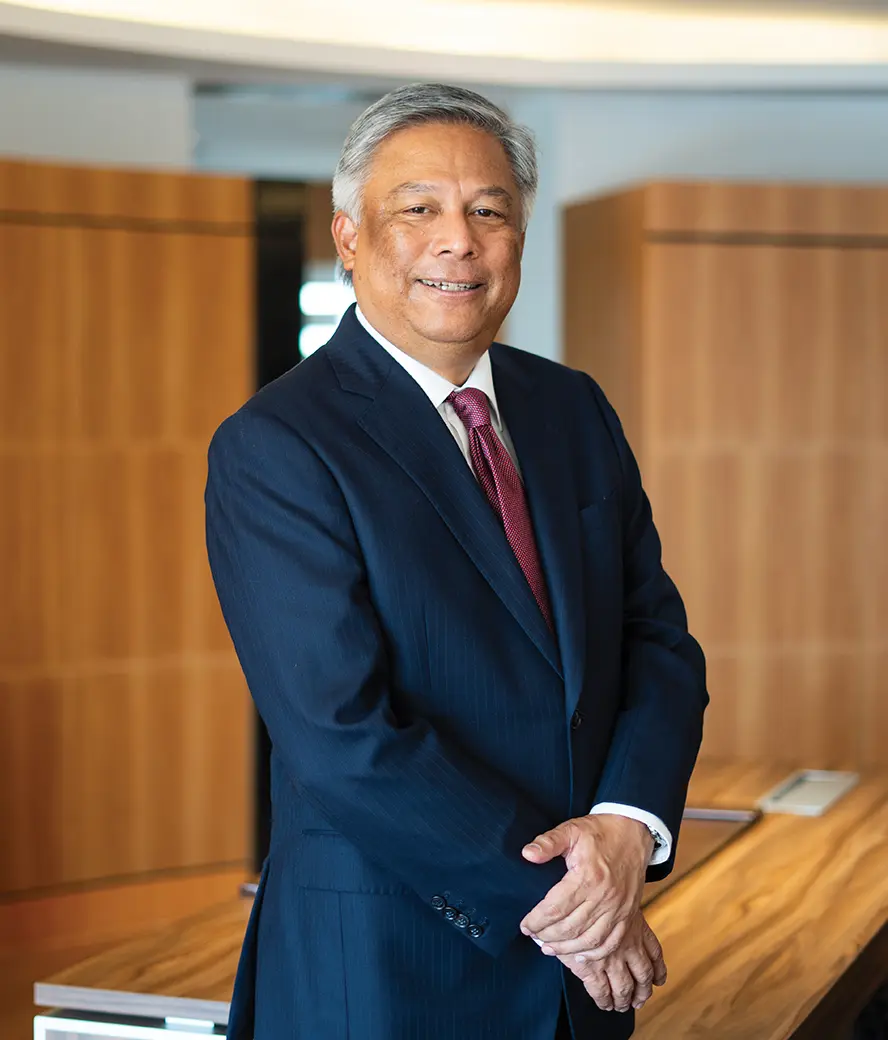 Another important facet is that I could sense our employees wanted to have a closer and more personal relationship with the Chairman. They’re just too tired of the Chairman being on top and them being either in the middle or at the lower echelon of the organization, so I’ve been holding for the first time a Chairman’s town hall meeting. I’ve clustered our properties in Metro Manila, that’s one cluster, then another one is officers and employees of our properties in central and northern Luzon, and the third cluster is the Visayas and Mindanao cluster. I could sense that it was a very good idea because now people are not only getting closer to me but they’re all getting to know me better compared to who they thought I was. Now with these efforts, there is a rapport developing, and I think this is a key ingredient in being a successful Chairman and CEO of PAGCOR.
Another important facet is that I could sense our employees wanted to have a closer and more personal relationship with the Chairman. They’re just too tired of the Chairman being on top and them being either in the middle or at the lower echelon of the organization, so I’ve been holding for the first time a Chairman’s town hall meeting. I’ve clustered our properties in Metro Manila, that’s one cluster, then another one is officers and employees of our properties in central and northern Luzon, and the third cluster is the Visayas and Mindanao cluster. I could sense that it was a very good idea because now people are not only getting closer to me but they’re all getting to know me better compared to who they thought I was. Now with these efforts, there is a rapport developing, and I think this is a key ingredient in being a successful Chairman and CEO of PAGCOR.
AWS: You’ve made a big deal about the privatization of PAGCOR’s casinos and have also announced various initiatives designed to increase the value of them. According to recent reports you would also like to get this done by the third quarter of 2025. Is this timeline achievable?
AT: Well, maybe we’ll start the [selling] process then. On the issue of privatization, from day one I thought this was something that I must not only try to do but something I must do. Why? My simple answer is never should any regulator of anything be an operator too. You cannot be a regulator and the regulated. I’m not only talking about the gaming industry but also different franchising boards, regulatory commissions, transport commissions – there’s no way this is right, proper or ethical for a regulator to be an operator too.
So, from day one I talked to people and attended conferences and most if not all of them said, “You are thinking of the right thing. If I were in your shoes, I’d do the same thing.”
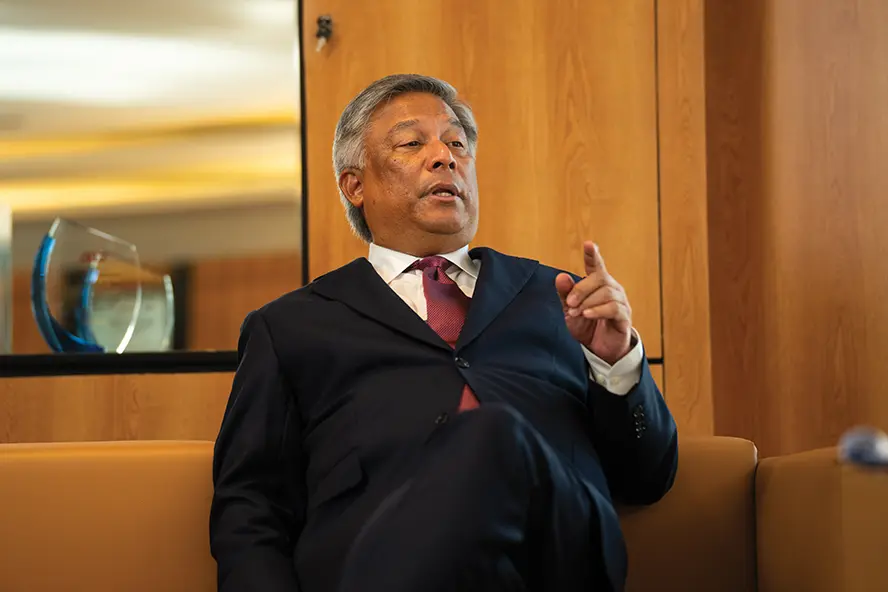 AWS: What level of interest have you had so far since you made the announcement of privatization? What sort of companies might be interested in acquiring those assets and what’s the feedback been from them?
AWS: What level of interest have you had so far since you made the announcement of privatization? What sort of companies might be interested in acquiring those assets and what’s the feedback been from them?
AT: We have a total of 41 properties, some being 100% owned, for one or two 60-40 sharing and 65-35 sharing for the rest, which is the more common ratio. PAGCOR is running operations, providing employees when needed and training them, and the other partner is providing marketing and taking care of some of the utilities and certain bills for some services. That is the present setup.
In terms of interest, we have received so many queries seeking an appointment with me, letters being written and of course during conferences where people will just ask that they be referred to the proper person. We’re now getting more inquiries from local companies and many of them are from the gaming industry, currently operating their own casinos. We’ve also had a few inquiries from foreign entities in the gaming business, so I can sense there is enthusiasm.
When will it be? I’m really going to start preparing for the privatization in different stages, the first being the improvement and renovation of our properties. I want to clean them up so that customers will feel more comfortable, not only with the physical look but also mechanical aspects like air conditioning and making sure we are following all the standards of the building code, fire code and everything, because some of the buildings are already old.
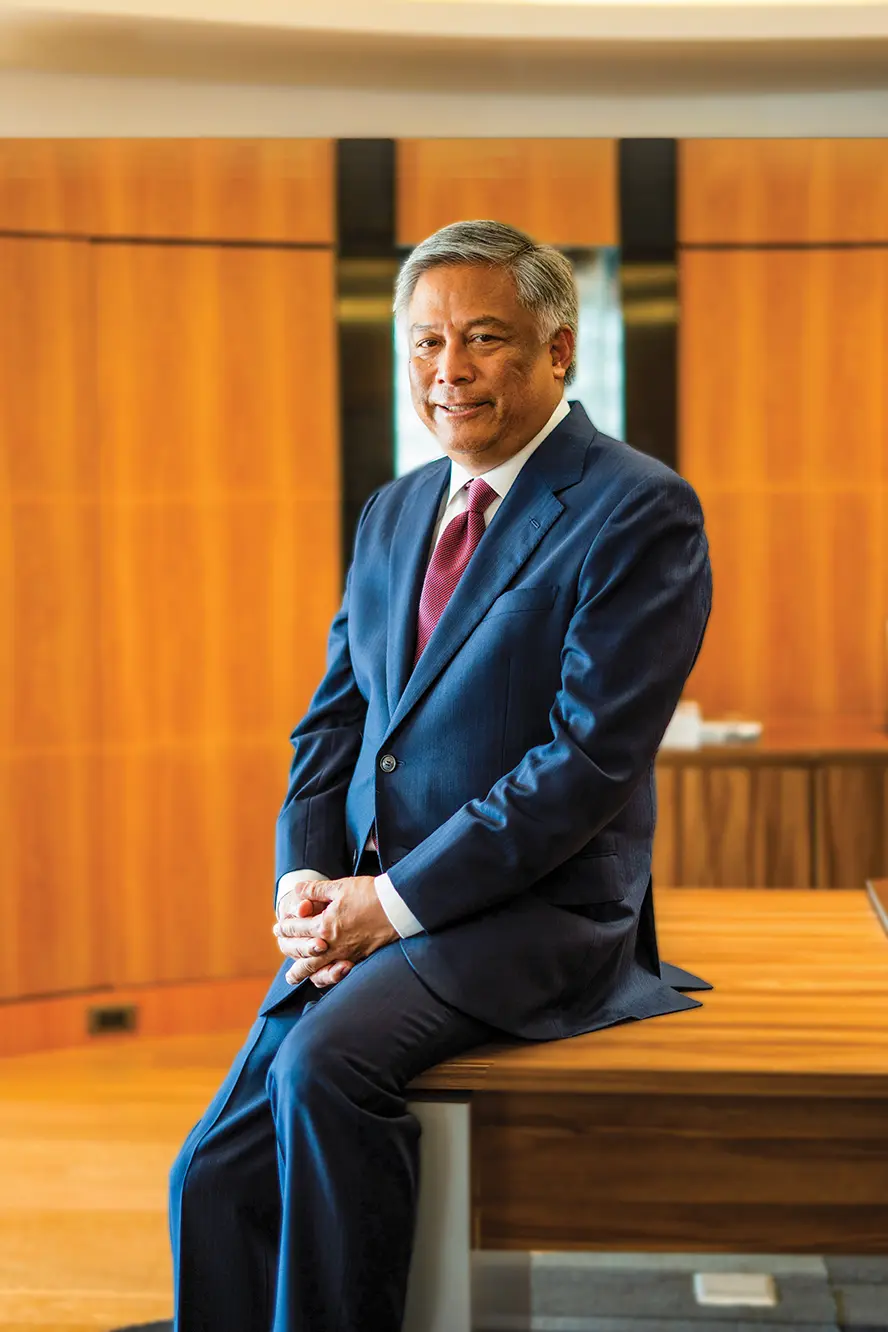 Then we will be upgrading our slot machines, and I’m happy to inform you and all of your readers and followers that we are now in the process of final negotiations with manufacturers of these machines. I think once I am able to make an announcement, everybody will be surprised with the final commercial outcome, because one thing’s for sure, everybody would say that PAGCOR was able to conclude a good deal. Revenues will be a lot more towards PAGCOR than the manufacturers.
Then we will be upgrading our slot machines, and I’m happy to inform you and all of your readers and followers that we are now in the process of final negotiations with manufacturers of these machines. I think once I am able to make an announcement, everybody will be surprised with the final commercial outcome, because one thing’s for sure, everybody would say that PAGCOR was able to conclude a good deal. Revenues will be a lot more towards PAGCOR than the manufacturers.
We are upgrading close to 4,000 machines, and because of this volume we’ve been able to get a better deal from the manufacturers. We’re in the final stages of negotiation, so we will see.
AWS: You recently announced the launch of Casino Filipino online. Why did you decide to launch this online operation, and is PAGCOR launching a new operation counterintuitive to the goal of privatization?
AT: Andrew, you’re not the first person to ask me to clarify this. Let me explain. We’re still two-and-a-half years from privatization. In my mind, to be able to enhance the value of the properties – to get a better deal from prospective buyers – myself and the Board thought that the more products you have, the more value you will get, because you’re not only selling the casino license.
That’s number one. Number two is upgrading the machines whereby almost 80% of the machines will be brand new or at most two years old. Your property has been repainted, your gaming area and carpets have been changed – these are steps to enhance the value. So, I thought, “There’s still two-and-a-half years to go and a Casino Filipino brand will help raise the value,” because this will definitely have new customers and at the same time loyal customers will be playing. That brings up the revenue, and the higher the revenue, the better price you’re going to get.
PAGCOR will not retain [Casino Filipino online] after privatizing. It is part of what we will be offering for sale. I think there’s a confusion and I hope I have made myself more clear. Hopefully by 2025, when it’s time to sell, we have increased that revenue.
The fact is that the revenue of our 41 properties has not grown as fast as the IRs, so it is my belief and the Board’s belief that by upgrading, by renovating, by having the Casino Filipino brand, our value will become higher.
AWS: So, you are looking at a three-stage process, one, clean up the properties, two, new product throughout, three, launch of the Casino Filipino online brand – all to enhance the value for sale.
AT: Yes.
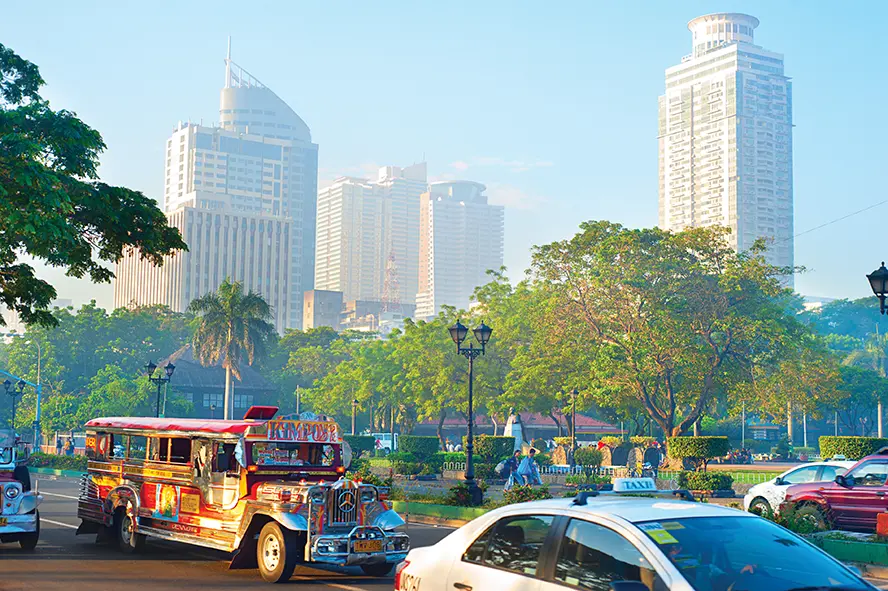 AWS: Selling is not going to be an instantaneous thing. I believe you’ve got 18 landlords for the various venues, and they’re being touted as possible acquirers. There are other possible acquirers too, so am I correct in assuming it won’t be all sold in one lump?
AWS: Selling is not going to be an instantaneous thing. I believe you’ve got 18 landlords for the various venues, and they’re being touted as possible acquirers. There are other possible acquirers too, so am I correct in assuming it won’t be all sold in one lump?
AT: That’s right, it will be sold in different pieces, and what I intend to do is to bundle some properties. Some properties are in one area, so there is a very big possibility that I bundle the entire area.
AWS: And how long do you think this process will take from start to finish once you’re ready to sell?
AT: I think we would be lucky if we can conclude this in a period of about 18 to 24 months.
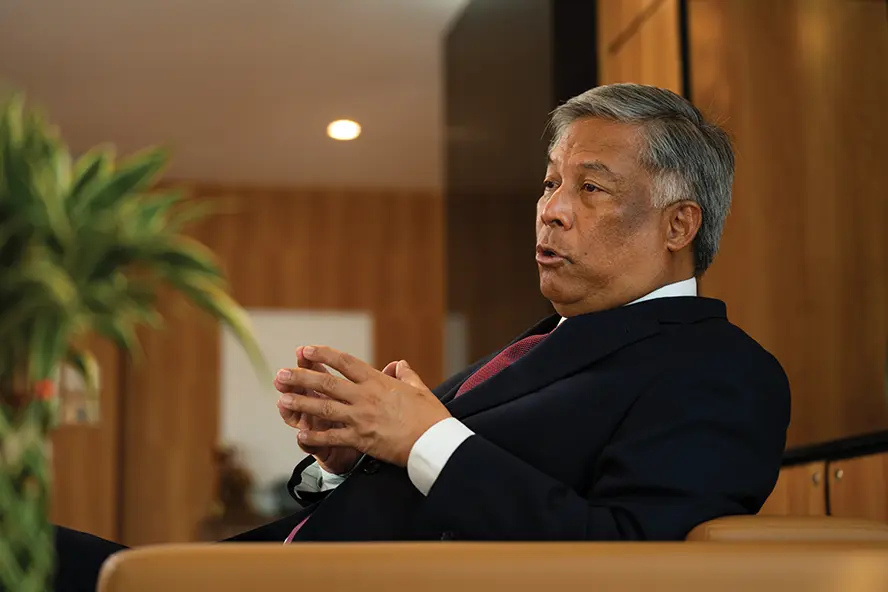 AWS: So it could be three-and-a-half to four years from now until this process is complete and the properties are all sold?
AWS: So it could be three-and-a-half to four years from now until this process is complete and the properties are all sold?
AT: Yes, from now. That is how I see it. What I think will happen is that definitely the lucrative ones – the ones that are top rated – will be sold just a few months after our announcement that we’re ready to sell. In fact, even this early, some are already asking if they can purchase. I said no, it is a public bidding. We will have a terms of reference, because more important for me is to make sure that our employees who will be affected by this privatization will get their fair share. That for me is very, very important because I just don’t want my fellow PAGCORians to be displaced just like that. I will make sure they get whatever is due them. Hopefully, if we are successful in the privatization process, it’s possible they may get some bonus.
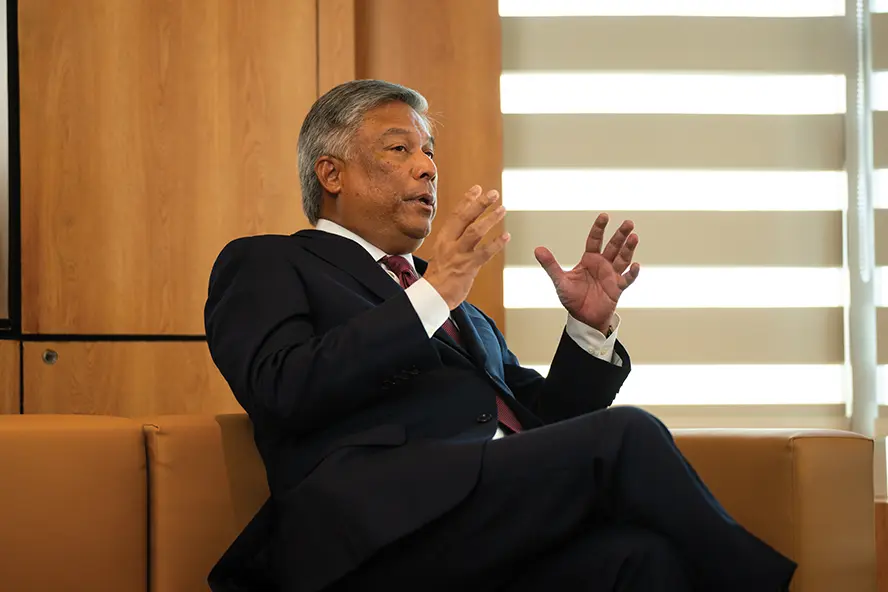 AWS: Let’s move on to the topic of the Philippines as a gaming center. We’ve seen at least one major equipment supplier relocate their head office from Macau to the Philippines and another open a brand new showroom in the Philippines. These companies tell me they’ve done this because they see being more Philippines-based as a greater opportunity for growth. Is this something you think the Philippines can capitalize on? Can the Philippines become a center for gaming companies to base their operations in servicing the entire Asian region?
AWS: Let’s move on to the topic of the Philippines as a gaming center. We’ve seen at least one major equipment supplier relocate their head office from Macau to the Philippines and another open a brand new showroom in the Philippines. These companies tell me they’ve done this because they see being more Philippines-based as a greater opportunity for growth. Is this something you think the Philippines can capitalize on? Can the Philippines become a center for gaming companies to base their operations in servicing the entire Asian region?
AT: I would answer in the affirmative. Definitely the Philippines should capitalize on the possibility of equipment manufacturers or suppliers transferring their hubs to the Philippines. I think if there is one area in the world where gaming will steadily progress in the next few years it is Asia. Compared to the other parts of the world, I think gaming activity in Asia will have continuous and steady growth in the next few years. And if this happens, then the Philippines will be a good place to have at the very least an office or even better a facility to manufacture or restore equipment.
There are a lot of enquiries around old slot machines and the possibility of [manufacturers] setting up a facility so that they can restore old machines, use old machine parts for new machines or repair old machines. If I’m not mistaken, two or three have asked me directly if they would be allowed to have this type of restoration facility. And of course, there are some who want to set up the manufacturing of machines in the Philippines.
We have very good economic zones – Clark for one, Subic the other – so these are the areas I recommended to those who were inquiring about what would be a good area outside of Manila. Clark or Subic would work because you can export immediately via air or via sea.
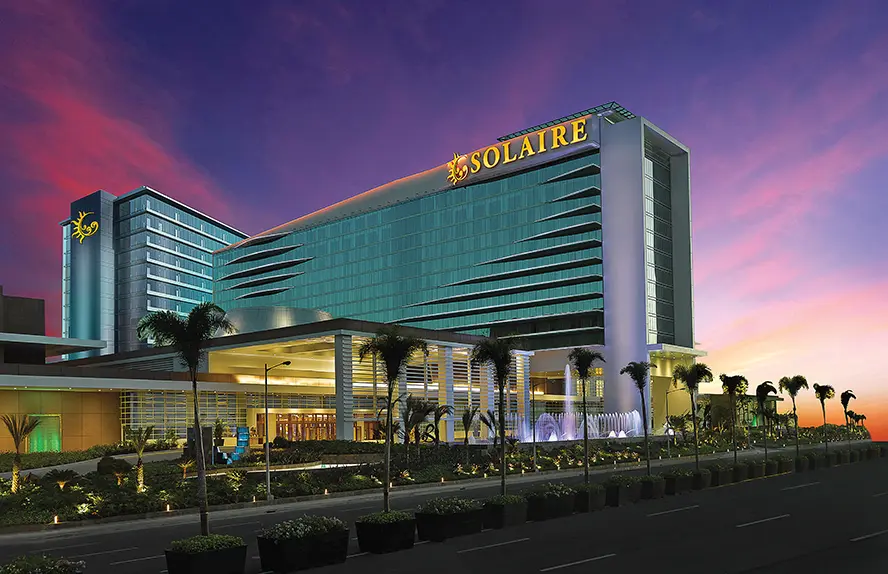 AWS: It’s also the operators that have been turning towards the Philippines. We’ve seen the growth of Entertainment City over the past decade which has led the Philippines to become the second largest hub in Asia in terms of GGR, behind only Macau. How do you feel that Entertainment City has improved the attractiveness of the Philippines generally as a tourism destination?
AWS: It’s also the operators that have been turning towards the Philippines. We’ve seen the growth of Entertainment City over the past decade which has led the Philippines to become the second largest hub in Asia in terms of GGR, behind only Macau. How do you feel that Entertainment City has improved the attractiveness of the Philippines generally as a tourism destination?
AT: Well within Metro Manila, there would be no cluster of five-star and even six-star rated hotel rooms other than in Entertainment City. The gaming facilities are all up to par with the top gaming areas or gaming cities in the world. Beautiful casinos. Then, there’s top entertainment. We’ve got very good restaurants in the Entertainment City area. Name it, you have it: Chinese, Japanese, Asian, Western, French, anything. Then you have your resort feel, resort-themed landscaping, and finally facilities for meetings and conventions. And Entertainment City is connected to the Skyway. So Entertainment City has become a magnet.
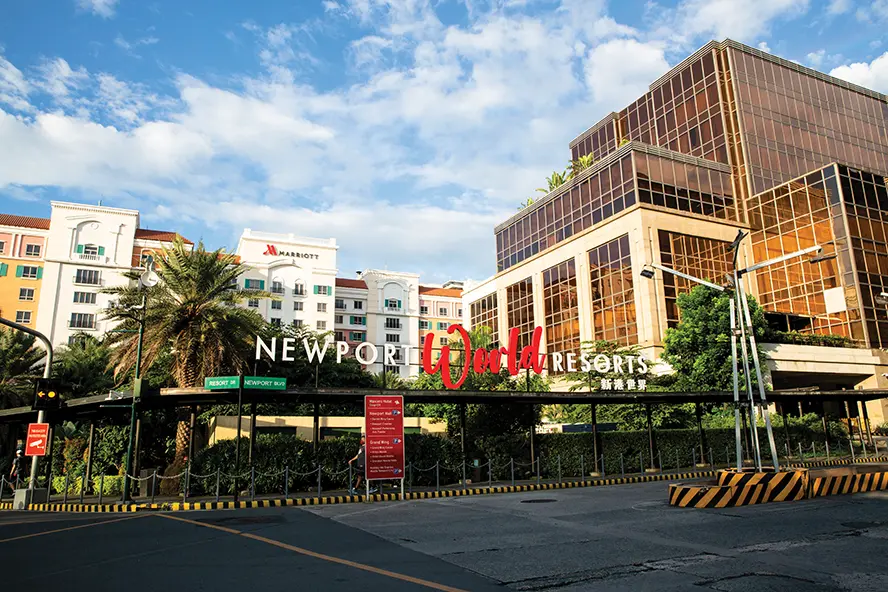 AWS: You obviously have City of Dreams, Okada Manila, Newport World Resorts, Solaire, and coming soon is Westside City. There is also Solaire North opening soon in Quezon City and eventually another Solaire in Cavite. Has Manila reached saturation point or is there room for more integrated resorts? And if there is room for more, where?
AWS: You obviously have City of Dreams, Okada Manila, Newport World Resorts, Solaire, and coming soon is Westside City. There is also Solaire North opening soon in Quezon City and eventually another Solaire in Cavite. Has Manila reached saturation point or is there room for more integrated resorts? And if there is room for more, where?
AT: Again, I would answer in the affirmative, there is still room for more. I don’t think the market is saturated. Why am I saying this? Pre-pandemic, if I’m not mistaken, close to 4 million tourists visited the entire area. Today, our count is only about 1.82 million visitors in Entertainment City. That is much lower than it used to be, so if you look at the potential compared to pre-pandemic, then definitely you still have more room and more people are expected to come. Chinese tourists alone: there were more than a million visiting the Entertainment City area, but today we have not seen those numbers. And then outside Metro Manila I can see a rising star and that’s Clark. Clark now has two integrated resorts, Hann and Royce. One is doing exceptionally well and the other is doing well.
What does that mean? That means the market in that area is not saturated because there are five other land-based casinos also in Clark that are not IRs, and if you go out of the gate (bordering the Clark Freeport Zone), five minutes away is a property that has been there for years and years [Casino Filipino in Angeles]. And It’s doing well up to today.
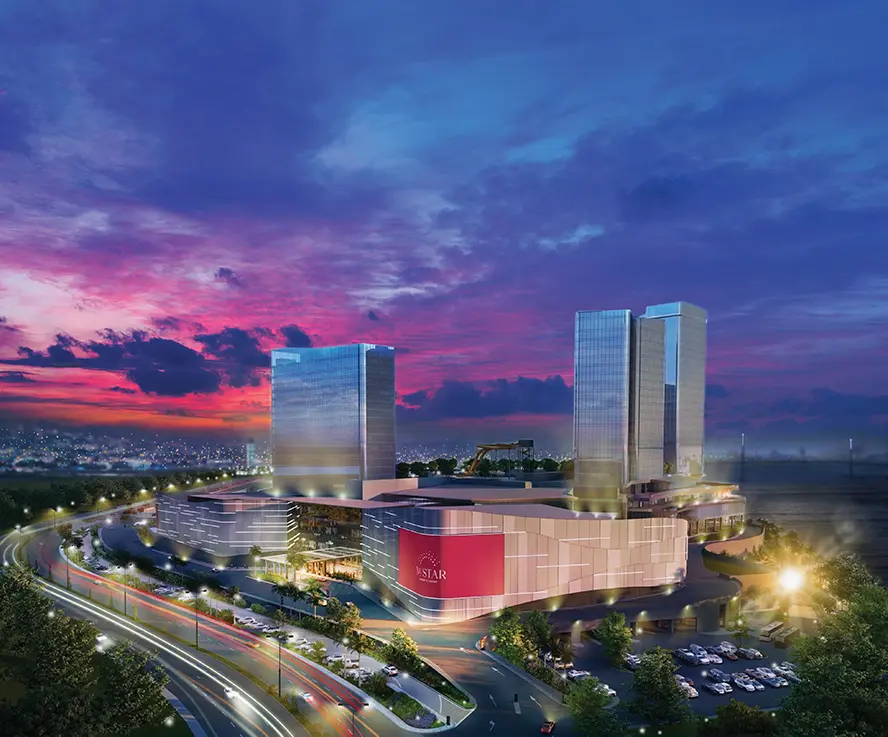
AWS: Speaking of Clark, what role do you see Clark playing long-term in the future of Philippines gaming and tourism?
AT: Clark, as I said, will be a rising star. We can start with Clark International Airport which is a beautiful international and domestic airport. Everybody who has used the Clark International Airport will say one thing, “Beautiful experience and beautiful property.”
From Clark International Airport you’re just 15 minutes away from the center of town, guaranteed, because there’s no traffic. You have flights coming from Korea, Taiwan, the Middle East, you have the three carriers of the Philippines with regular flights internationally and domestically. And it has two runways. So, you can just imagine there’s an attraction already because of the airport.
Number two is Clark as a former US military base is perceived to be more secure – a big property that has a perimeter fence. And number three, it is located in central Luzon – the second most populated region in the Philippines. So, you have a big market locally. You’re integrated or connected by a network of tollways and the Skyway connecting everything that is going in and out of Clark. Finally — I’m not sure if you’ve heard — there will be a railway system from Manila to Clark and ultimately from Clark to Subic to be able to transport cargo to the port.
There is also the expansion from the existing Clark center to what they call New Clark City, which is thousands and thousands of hectares of new land just 15 to 20 minutes away from the heart of Clark, and this provides the room for expansion. This is why I believe Clark will be an ideal place for gaming.
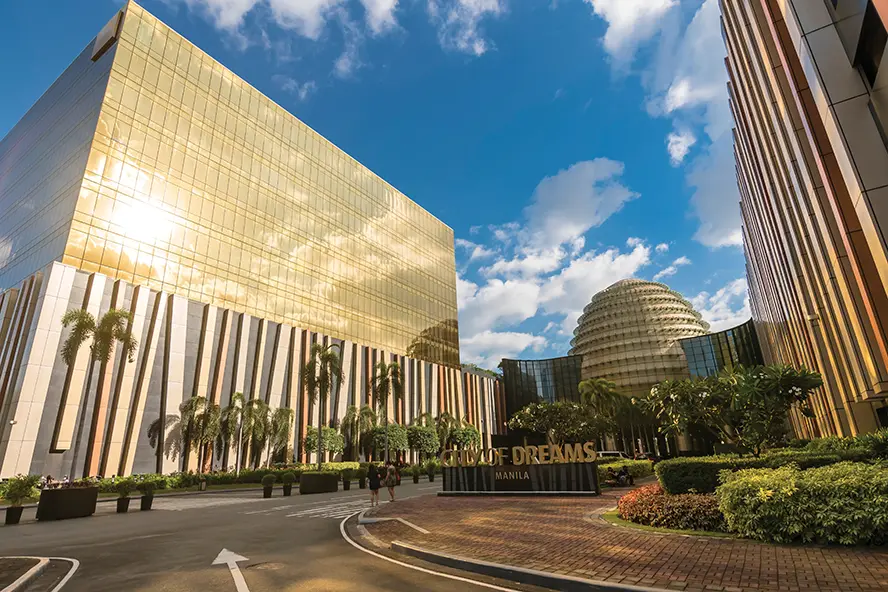
AWS: Let’s move on to online gaming, which has been a big subject for the Philippines. Asia does not have much regulated online gaming – the Philippines is really the only market that has attempted to exploit this sector. However, there has been a raft of negative headlines around the POGOs, with some bad actors in the industry. Can the industry be cleaned up? Does it have a future in the Philippines? Does it need rebranding?
AT: Can it be cleaned up? That is what I’m doing right now. It’s very clear that when these companies were issued licenses to operate a gaming business, they were not properly monitored, and rules and regulations were not followed. There were some companies not providing the gaming business they were supposed to but instead involved in illegal activities.
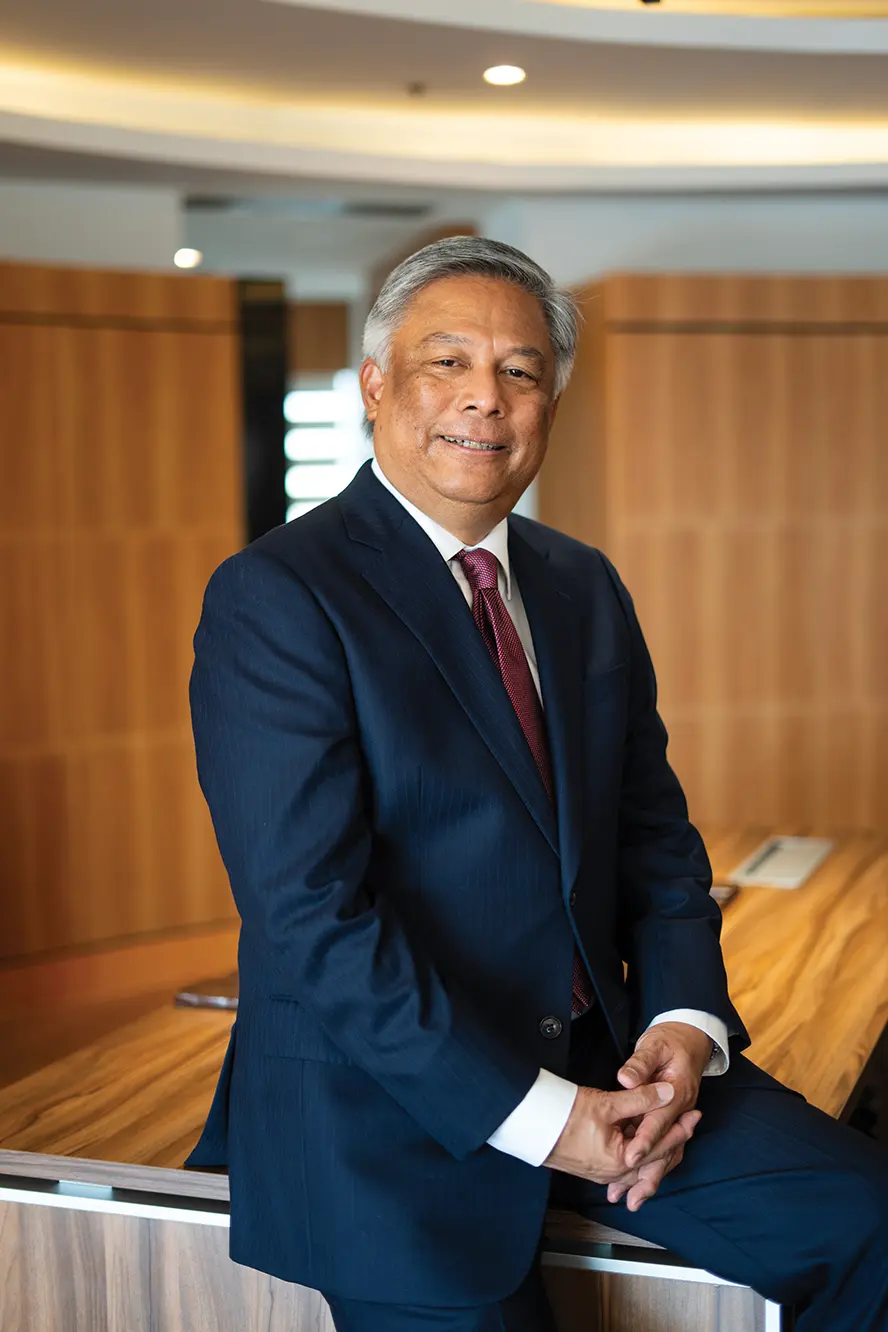 So, in my incumbency as Chairman and CEO, we strengthened our intelligence and information gathering. We have been closely monitoring and coordinating with the other government agencies that have police power. I’m talking about the Philippine National Police for example, the Department of Justice, Department of Interior, Department of Information and Communications Technology and local governments. We have regular meetings and there we exchange whatever information or evidence we have against illegal operators, and that has resulted in the closure of a big POGO hub in Clark. Not only did we cancel the license of the company, but also the license to operate the hub.
So, in my incumbency as Chairman and CEO, we strengthened our intelligence and information gathering. We have been closely monitoring and coordinating with the other government agencies that have police power. I’m talking about the Philippine National Police for example, the Department of Justice, Department of Interior, Department of Information and Communications Technology and local governments. We have regular meetings and there we exchange whatever information or evidence we have against illegal operators, and that has resulted in the closure of a big POGO hub in Clark. Not only did we cancel the license of the company, but also the license to operate the hub.
We have been going against those that are involved in human trafficking and kidnapping, so I believe if you are able to properly monitor and properly police there is definitely a chance the industry might contribute more revenue. But if you just close your eyes and let them do what they want to do, it will go back to the wild, wild west.
Effective from 1 August we placed all our overseas gaming licensees under probation, and the requirement now is for all licensees to reapply and pass through probity checks, make disclosures of beneficial owners and be subject to inspection of their facilities – not only prior to operations but on a regular basis. I believe these steps will result in a better industry for overseas gaming.
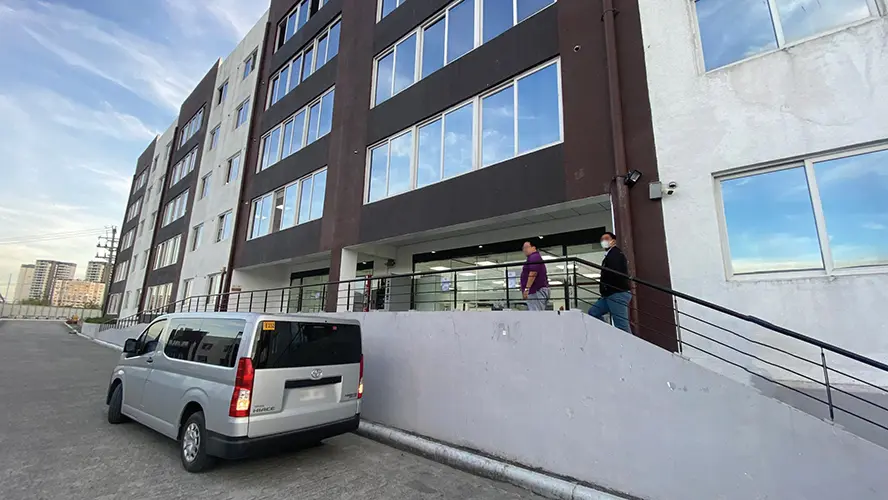
AWS: It strikes me that there is a fundamental conflict in relation to offshore gaming in that POGO operators target customers from outside the Philippines, including mainland China where it’s illegal for these citizens to play online, whether it be via a licensed POGO or not. Does this create tension between the Philippines and such countries, particularly China?
AT: Well, I have been told that in the past, years back, there was an initial discussion on the matter by the higher officials of the Philippines and China. But lately – unless I don’t know, which I would say is improbable – our attention has not been called [to this] by the Chinese government. I do not know of any incident wherein the relationship between China and the Philippines will be affected because of these overseas gaming licenses. There are other issues that the Philippines is more concerned with, namely the territorial jurisdiction of the West Philippine Sea. But with regard to the overseas gaming licensees doing business here and the market being any country in Asia, no specific call has been made to us.
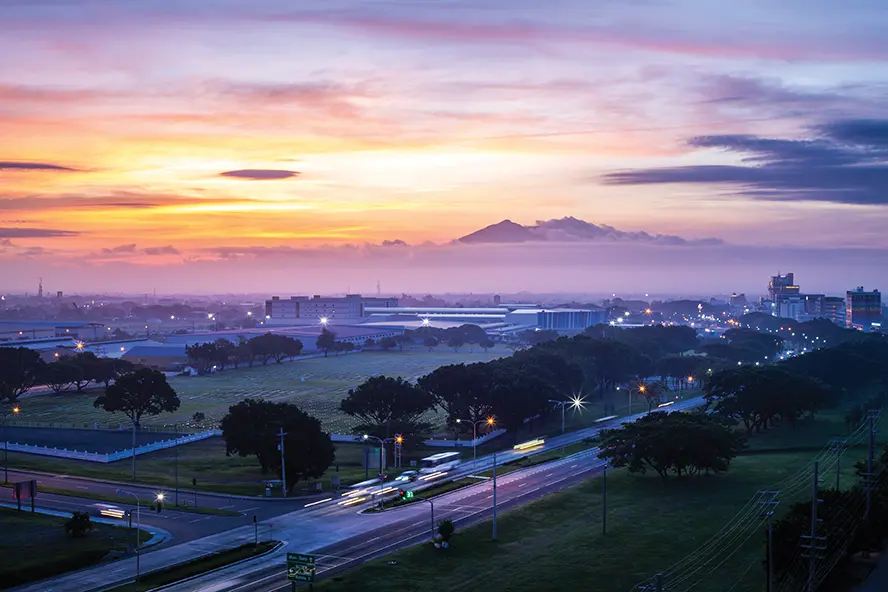
AWS: So, in your tenure in the last year, China has never called you on this issue?
AT: No. In the last year, I have not received a call, that’s for sure.
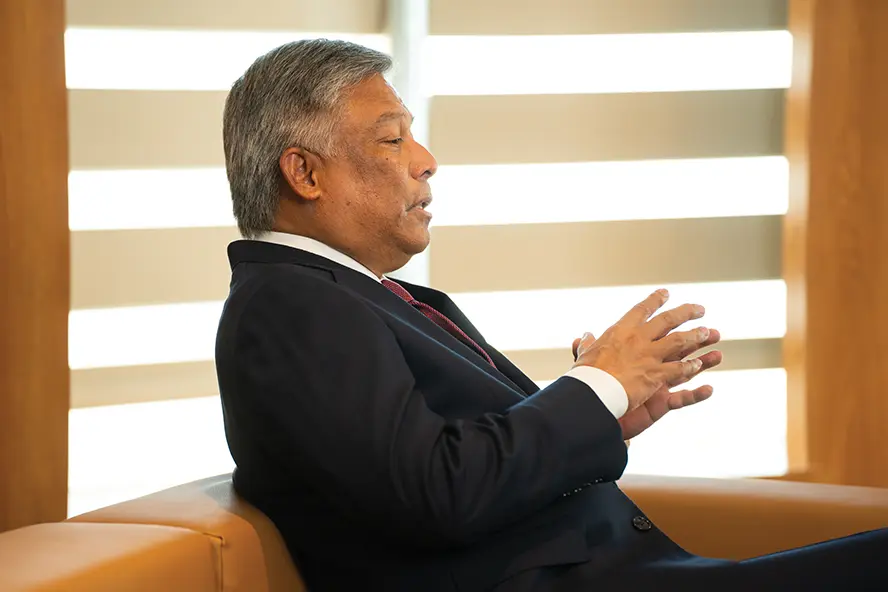 AWS: You announced recently there would be a review and an update to technical standards in the Philippines. What were the key reasons behind doing this?
AWS: You announced recently there would be a review and an update to technical standards in the Philippines. What were the key reasons behind doing this?
AT: I think fairness, transparency and integrity are very important attributes that a regulator must have. Our operations group recommended looking at our regulations, structures and entire standards to see how we can make sure that we have these three important attributes – fairness, transparency and integrity. I can assure you and everyone that by 2024 we will feel the difference between the old framework and the new framework we are adopting today. Maybe we can sit down with you again at that time to explain these changes in detail – I’ll give you a call then!
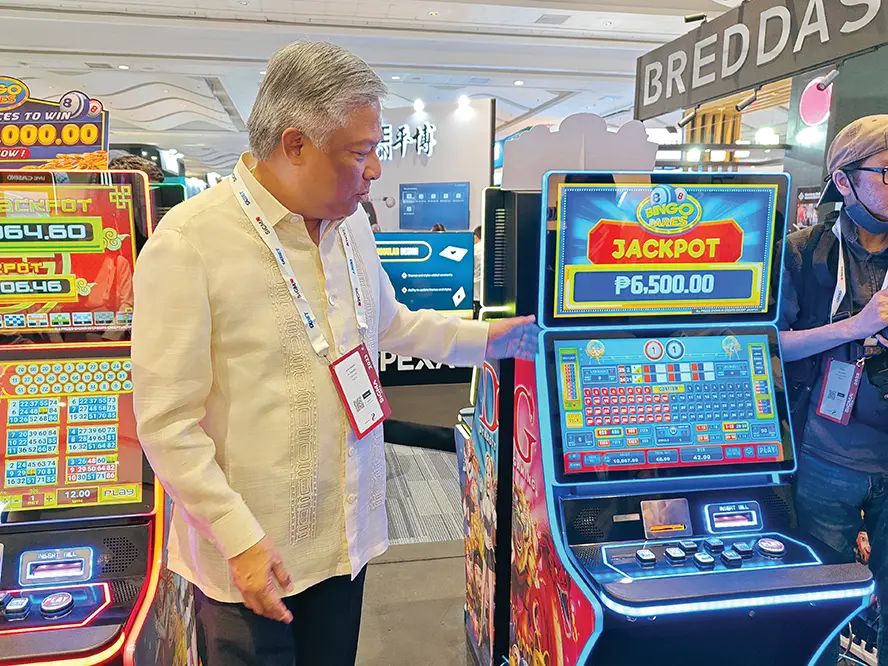 AWS: The tenure of a typical PAGCOR Chairman-CEO is aligned with that of the President, and since presidents in the Philippines get one six-year term, it would be natural to assume that you’re one year into a six-year job. Looking ahead five years from now to when your term is done in mid-2028, what is it that you hope to have achieved by then? What is it that you would hope somebody commentating on your tenure would say about you and what you’ve done in that time?
AWS: The tenure of a typical PAGCOR Chairman-CEO is aligned with that of the President, and since presidents in the Philippines get one six-year term, it would be natural to assume that you’re one year into a six-year job. Looking ahead five years from now to when your term is done in mid-2028, what is it that you hope to have achieved by then? What is it that you would hope somebody commentating on your tenure would say about you and what you’ve done in that time?
AT: First and foremost would be a successful privatization. As I said, from day one, that was already on my mind, and I think if I would be able to pull this off, that is something I would truly be proud of because it should have been done before. I would be correcting a wrong that should have been corrected in the past. Another important facet that matters to me is being able to restructure the entire organization within the next five years. I’ve started some changes and will continue to make changes. It would be my dream that the next Chairman, whoever he or she may be, will be able to fit themselves into the role without having to face so many challenges.
And finally, I want all PAGCORians to always bear in mind that I work for them and with all the difficulties that they have experienced under my leadership, I want PAGCORians to be proud that during my incumbency, together we were able to institute these reforms for a better PAGCOR.
Those three will be the most important things I’ll work hard for in the next five years. If I am able to accomplish these, it will be something that not only I, but every PAGCORian, and I guess the rest of the Filipino people, will be proud of.